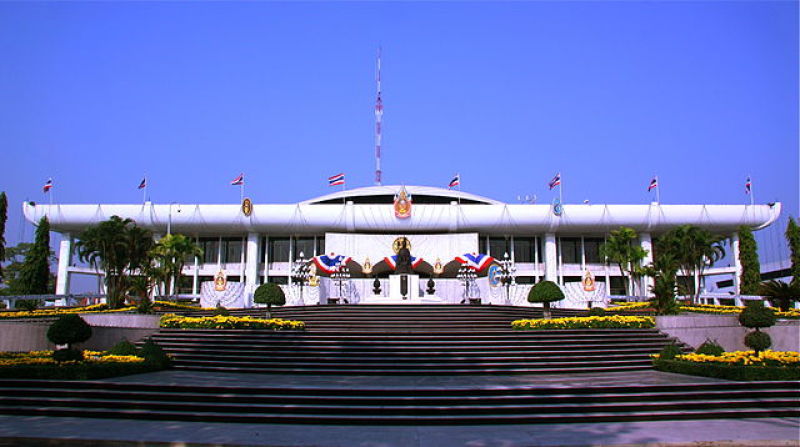
Thai voters approved a military-backed constitution in Sunday's referendum, which lays out set rules for electing new governments. Prime Minister Prayuth Chan-ocha assured citizens that the next general election will be held in 2017.
The new constitution will allow the creation of a special senate with seats reserved for military members who will have the power, together with the lower house, to elect the prime minister. Prayuth, in his capacity as army general, staged a coup d'état against the previous government in May 2014, and has served as the country's leader since then.
According to political analysts, overwhelming support for the military-backed constitution was the result of years of instability plaguing the country.
Preliminary counting showed that the capital city of Bangkok and central Thailand favored the constitution. However, regional divisions along political lines were observed as residents of the far north and south voted against the new measures.
Of the 94 percent of the counted votes, a majority (61.4 percent) of people backed the incumbent government's proposal while 38.6 percent opposed it. About 58.1 percent of the Thai people supported the formation of a military-appointed Senate which will be instrumental in choosing the prime minister. Meanwhile, 41.9 percent of voters opposed a military-appointed Senate.
The amended constitution will enable the military to have a prominent role in democratically-elected governments.
Supporters of the constitution are hopeful that the new constitution will allow the incumbent government to restore the sagging economy.
"Given the mandate that's given to the military, it would at least buy Thailand some time for the government to come up with an actual economic plan for the country," Aim Sinpeng, lecturer in comparative politics at the University of Sydney, told CNBC. "That time would be stable and less challenged compared to the previous two years of military junta, where it started to look really rocky."
[The country's economy has stumbled amid a lack of external demand for its exports given the sluggish global backdrop, while the political uncertainty within the country had slowed investments and discouraged tourism, a key sector for the country.
Thailand's economy suffered huge losses in exports because of a stagnant global demand, while political uncertainties in the country kept the investors away and negatively impacted tourism industry as well.]
The constitution will be very difficult to change without backing from the military, apart from requiring support from a majority of the parliamentary assembly comprising of 750 members.
Anti-corruption measures are also included in the constitution, which make it mandatory for lawmakers to have a proven track-record of "honesty." The election commission and Supreme Court will determine the eligibility of the politicians to stand in elections, but they cannot be removed from office by petitions as was permitted in earlier constitutions.
A key element of the constitution is that it requires government to endorse Buddhism, while permitting freedom of religion.



















